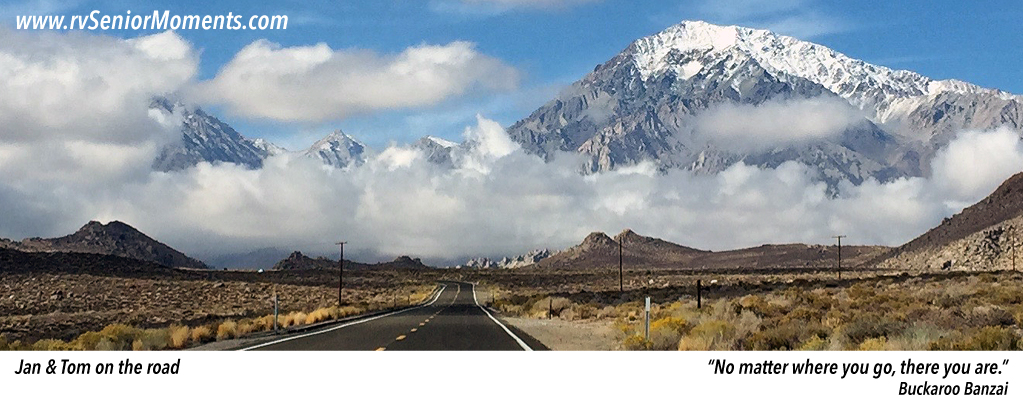Campground Internet Report 1
We’re about 1/3 of the way through our West Coast trip. I thought it was a good time to summarize our experiences with campground Internet, a service we depend on in our travels.
At a campground, we can get Internet services through one or more of the following:
- Campground WiFi – if, and only if, it’s available.
- Verizon – we have an old New Verizon 40 GB Plan and use a USB730L modem plugged into a Cradlepoint 1200B router.
- AT&T – we have an Unlimited Data plan using an AT&T Mobley.
- HughesNet Gen 5 – we currently have a 50 GB/month plan using a .98M HughesNet Gen 5 dish.
So how did each of these work out in the last 16 campgrounds we stayed?
Here are the results . . .
MY CONCLUSIONS:
First, and foremost, any conclusions are tentative as 16 campgrounds is just not enough data. That said . . .
- “Satellite Internet isn’t necessary because cellular reception is available at the vast majority of campgrounds” – this is a common statement found on web RV forums. Well, I had to use my HughesNet Gen 5 dish in almost 1/3 (5 of 16) of the RV parks we stayed because there was no Verizon or AT&T cell service available.
- “Campground WiFi is crappy” – another popular web forum notion. Though I wasn’t expecting much, I found campground WiFi to be much better than I thought it would be. For example, half (8 of 16) the campgrounds we visited had at least “usable” WiFi, that is, you could use it for web browsing. Also, 4 of those 8 campgrounds had WiFi fast enough for streaming video on a regular basis.
- “Verizon is better than AT&T” – I’m not finding that to be true. Based on these 16 campgrounds, I’d drop my Verizon data plan. However, I’ll postpone that decision until the end of our trip.



Wow! Just imagine RVing circa pre-1993…
Great information, looking forward to the final outcome. Stay healthy, travel safe.
Tom, I concur with your AT&T vs Verizon findings. We have both tetherable Verizon (on our Android phones) and a Mobley plan accessed via a Netgear Unite Explore. We do not currently employ a booster although I have a small external antenna for the UE. Over the past two years I’ve done a speed test on both services for every place we stay. AT&T is often the winner in terms of performance and in general tends to have better upload speeds as well. I have also found basic AT&T availability to be better for many of the areas we have traveled, for example our summer spot in RI where Verizon service is *extremely* weak. That said there are spots where Verizon is phenomenal or the only game in town. Bottom line I like having more than one service so we can use whatever is best wherever we are.
We have traveled extensively in the eastern and southeastern US and spent two winters so far in the Southwest.
Most campground wifi we encounter in the east is poor to useless, either because of a poor deployment, an inadequate back end or a combination of both. Often it may work during the day but becomes unusable in the evening when everyone starts streaming. We did run into a few campgrounds in TX that had excellent wifi deployments. There is a trend we are starting to see for higher end campgrounds to install more robust and/or more manageable wifi deployments. Most of the time however we don’t need to even bother with the campground wifi.